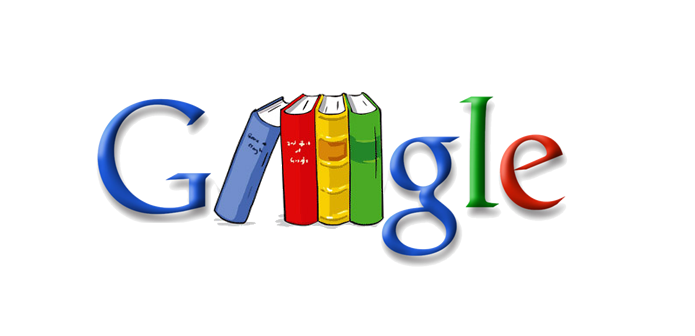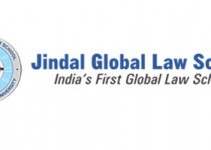A decade-long battle has been resolved, at least for now by the U.S. Court of Appeals for the Second Circuit in the case Authors Guild v. Google by ruling that Google Inc, through its Google Books, does not infringe the copyrights of the authors.
Boni & Zack, the law firm representing Authors accused Google for digitally copying millions of books without permission for an online library. The U.S. Court of Appeals for Second Circuit addressed the boundaries of fair use in copyright law and observed that under 17 U.S.C. § 107, making of digital copies of millions of books to create a search function for public was a fair use and therefore not an infringement.
Earlier, Chin (Federal Judge) disallowed a $ 125 million settlement in March 2011, saying that by giving Google a “de facto monopoly” to copy millions of books, it raised copyright issues. The 2nd US Circuit Court of Appeals found that Chin had not evaluated the fair use defense.
A three-judge panel of the Second U.S. Circuit Court of Appeals unanimously decided by affirming a lower-court ruling that Google’s scanning of millions of books wasn’t infringement of copyright under U.S law because what the company makes viewable online, is a very limited thing.
The plaintiffs named Betty Miles, Jim Bouton and Joseph Goulden (including The Authors Guild, a membership organization whose books, Google scanned as part of its project without permission) sued Google for copyright infringement in 2005. The Southern District of New York gave judgment on Google’s fair use defense, finding Google’s use of the copyrighted works as transformative and the display of copyrighted material was properly limited.
Â
Google Books project:
In the beginning of 2004 Google’s Library Project involved a bi-lateral agreement between them and other major libraries including the University of California, Harvard, Stanford, the University of Michigan, Princeton, the New York Public Library, Columbia and Oxford whereby, the libraries (in agreement) select the books from their collections and submit them for inclusion in the project. Then, Google will make a digital copy of each book, which forms an index of the machine-readable script for each book. Since 2004, Google has scanned more than 20 million books that are available in its Google Books search engine. People can search words/terms and can get a list of all books in the database, including a brief description of each book, an extract of text and a list of libraries where the book can be found. Google Books also provides a link to buy the book online.
Â
U.S. Court of Appeals ruling:
The Court of Appeals explained that
“…The ultimate goal of copyright is to expand public knowledge and understanding, which copyright seeks to achieve by giving potential creators exclusive control over copying of their works, thus giving them a financial incentive to create informative, intellectually enriching works for public consumption. Thus, while authors are undoubtedly important intended beneficiaries of copyright, the ultimate, primary intended beneficiary is the public, whose access to knowledge copyright seeks to advance by providing rewards for authorship. The doctrine of fair use, developed by the courts and now codified in section 107 of the Copyright Act of 1976, permits unauthorized copying in certain circumstances in order to promote the expansion of knowledge. Fair use is an affirmative defense, for which the defendant has the burden of proof. The analysis of fair use is not clear-cut, but depends on the particular facts of each caseâ€
Judges had to consider four factors to analyze the ‘fair-use’:
Those factors are:
- The purpose of use, containing whether it is for a commercial use or is for nonprofit educational purposes;
- The nature of content (copyrighted work);
- The amount of copied worked used in relative to the copyrighted work;
- The effect on market for the infringement of the copyrighted work.
The Second Circuit observed each of the factors against the Google Books project.
In addressing the first factor, the Second Circuit held that each part was within the scope of the fair use defense as the Google Books project was highly transformative of the original material .The court further ruled that the purpose of the scanning was also “highly transformative.â€
The court analyzed Google’s viewpoint that Google had limited the text availability from each search. Collectively, pages of a book were divided into 8 pieces (snippets). For instance, a page with 24 lines of script would be divided into 8 pieces of 3 lines each. 3 snippets could be returned with a search but only one out of every 10 pages in the book. 1 of the 8 snippets on each page were omitted from search results. Several searches for the same expressions would produce the same snippets. By searching for dissimilar terms, the applicants claimed up to only 16% of the book, which could be reproduced. But then again the resulting collection of snippets would be random and irregular fragments
The Court further observed that:
“We see no reason in this case why Google’s overall profit motivation should prevail as a reason for denying fair use over its highly convincing transformative purpose, together with the absence of significant substantive competition, as reasons for granting fair use. Many of the most universally accepted forms of fair use, such as news reporting and commentary, quotation in historical or analytic books, reviews of books and performances, as well as parody, are all normally done commercially for profit.â€
As to the second factor the Court observed that it was rarely a significant factor and the nature of the copyrighted work was rarely dispositive, the factor favored fair use because Google’s use provides valuable information about the original, rather than duplicating the original.
With respect to the third factor, the Second Circuit found that Google’s action for complete copying of the book for cataloging purposes was fair use. The court found that the copying of smaller portions of a copyrighted work is a fair use. While Google makes an unauthorized copy of the complete book, it does not disclose that digital copy to the public, the copy is made to reveal limited and important information about the books. The court further said that Google’s limits on the snippet feature were considerable and would prevent the user from gaining a substitute for the copyrighted work.
Finally, the fourth factor is the effect on the market for the copyrighted work, the court found that Google’s snippet feature did not provide a substitute for the copyrighted work and such limited available text (16% of a work) did not threaten with any major harm to the value of the copyrights.
Further, Complainants argued that Google’s digital copies of plaintiffs’ books are susceptible to hackers, to which Court observed that, this claim had a reasonable basis but the court further found that plaintiffs’ claim is “not supported by the evidenceâ€. Google had documented that Google Books’ scans are stored on computers which are far from public Internet access and are protected by the same impressive security measures used by Google to guard its own confidential information. Further, Plaintiffs hadn’t identified any thefts from Google Books. As Google submitted that Plaintiffs’ own security expert admired these security systems, stating that “Google is fortunate to have ample resources and top-notch technical talentsâ€
Plaintiffs’ any of the further efforts fell far short. In finding all factors favored Google for fair use, the Second Circuit affirmed the lower court’s verdict that Google did not infringe complainants’ copyrights. Google could lose billions of dollars if it lost the case. Under U.S copyright law, the minimum damages for infringement is $750 per work. The court asked Google “why did you do this?â€Â The answer to that question was “because I wanted to make a new contribution to knowledgeâ€.




